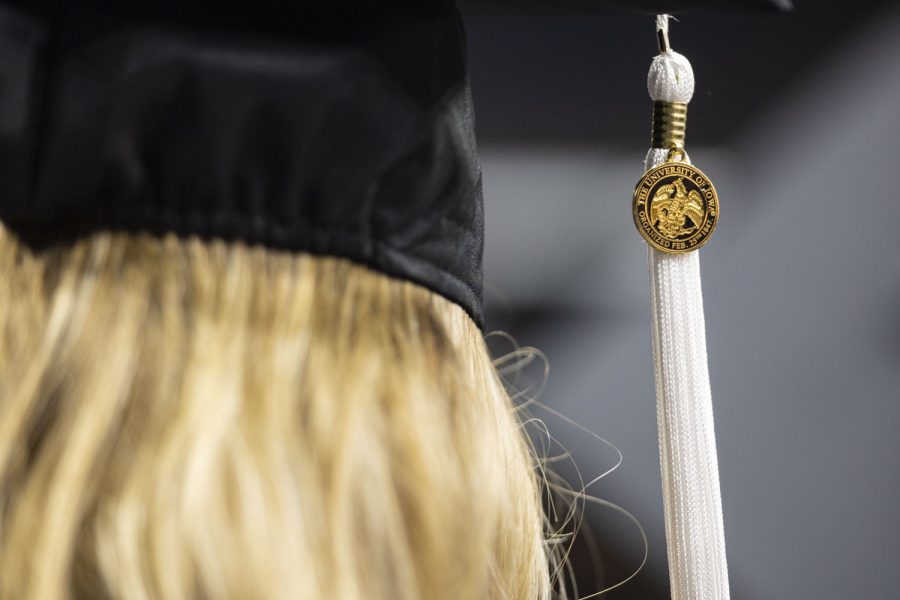When I was 10, all I ever wanted to be was 13. When I was 13, I wanted to be 16. When I was 16, I desperately wanted to be 18. When I was 18, I was dying to be 21.
Now, I’m a few months away from 22. All I want is to be younger.
I still remember the day I turned 20. At the time, I was unsure what the big deal was — I felt the same as always. But I remember family members saying, “Enjoy your 20s, it all goes downhill from here,” written in every birthday card or whispered in my ear after every hug.
The idea that everything declines after your 20s — your body, free time, late nights, freedom — scares me. Here I am, in my 20s, absolutely drained with anxiety.
It can’t possibly get worse than this.
Okay, I’m being dramatic (but seriously).
I know I’m probably getting a million eye rolls right now, complaining about my life as a college senior with almost no major responsibilities. Insurance, car payments, a mortgage, and taxes are all far from my mind.
This might sound ridiculous, and I’m not looking for sympathy, but I am trying to understand why I have no confidence in myself to figure out life on my own.
Instead, I feel anxious to get out there in the world, and, well, fail.
As I approach the end of my years in college, I am terrified to graduate. To move away. To find a job. To hate that job. To lose my freedom. To have kids and a family.
All of these moments are supposed to be really exciting. Don’t get me wrong — I’m thrilled for the most part, but few people talk about the darkness that comes in your 20s.
My whole life, I have tried to embrace uncertainty, though I’m probably the worst at it. Maybe that’s why, only two years into my 20s, I’m telling you they suck.
But I have never felt uncertainty quite like this. Your 20s are filled with eerie feelings of loneliness and getting older. The reality of actually going out and being on your own–it’s not as glamorous as it seems.
When I was 19, I didn’t have to think about any serious life-changing decisions. Nothing felt better than the average, unremarkable 19. That changed when I turned 20.
“What do you want to do post-grad?”
“What can you even do with a degree in journalism?”
“Where do you think you want to live?”
“Kennedy, what is your plan?”
I even got asked when my boyfriend was going to pop the question. I haven’t even graduated yet. Suddenly, my life was way more overwhelming than I would’ve ever imagined and I had only blown out one more candle than the year before.
All the pressure of moving out, getting a job, gaining financial stability, and possibly starting a family can cause major mental health concerns.
Although it can occur at any age, clinical depression is most prevalent in your early 20s, more likely affecting women. Clinical depression — the most severe type — can occur because of stressful life events, among other causes.
Depression isn’t the only mental health concern being addressed, according to The Guardian. “34% of people aged 18 to 24 reported symptoms of mental disorder, such as depression, anxiety, or bipolar disorder, in 2021-22,” an article from the publication states.
Though I’m not experiencing clinical depression, I am starting to feel the effects of mental health decline as I approach the final semesters of my undergraduate degree. Every day, I am consumed with not knowing what the future holds or where and what I want to be, all creating a mindset of uncertainty and anxiety.
Meg Jay, author of self-help guide “The Defining Decade: Why Your Twenties Matter and How To Make the Most of Them Now” said it may seem disappointing to hear that your 20s are not going to be some of the best years of your life, but it is actually positive news. Knowing that there is potential for life improvement can provide hope and having this hope can be very beneficial, and potentially life-saving, for young adults.
What Jay is trying to teach to 20-somethings like me is that although your 20s are a time for self-discovery, your 30s and beyond are when you can truly find happiness and stability. Despite the associated struggles, being unhappy in your 20s is realistic, and should garner hope for the future.
Your 20s only leave room for your life to get better.
“A meta-analysis of almost 100 different studies shows that, by around age 35, young adults report feeling less depressed, less anxious, less angry, less moody, and less reactive – and they also report experiencing more of the good stuff,” Jay said in a Vogue article.
As a college senior approaching 22, I may feel as if I was slapped in the face with reality, but maybe that’s the point. My 20s, although terrifying considering I’m only two years in, haven’t been all that bad. I’ve experienced and done more than I probably ever will again. I have, and am loved by, many friends and family. I am graduating with a degree in a field I’m so passionate about.
Yes, I am still scared and unsure of what’s to come, but I know I will eventually be okay, and so will you.
Here’s to 30.



